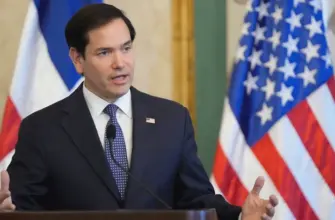After a protracted legal battle, ten bills previously stalled by Tamil Nadu’s Governor RN Ravi have officially become law, marking a significant moment in the ongoing power dynamics between state governments and gubernatorial appointments.
The Supreme Court’s recent ruling declared the Governor’s actions regarding these bills “illegal,” asserting he cannot refer them to President Droupadi Murmu after initially withholding assent. The court ordered that the bills be considered cleared from the date they were re-presented, effectively bypassing the need for further gubernatorial approval.
As stated in the judgment, “…these bills shall be deemed to be cleared from the date it was re-presented…”, emphasizing the limitations on a Governor’s ability to indefinitely delay legislation after initially refusing assent and subsequently referring it to the President.
Chief Minister MK Stalin welcomed the verdict, calling it “historic” and stating, “This is a big victory for all Indian states…” He suggested this ruling could set a precedent for resolving similar disputes involving other state governments facing challenges with their respective Governors.
The ten bills, now law as of November 18, 2023, encompass various amendments, notably impacting the appointment process for Vice Chancellors of state-run universities. These changes significantly reduce the Governor’s authority in making these appointments.
The dispute began when the Governor initially rejected the bills on two separate occasions, triggering a special session of the Tamil Nadu Assembly where they were re-passed unanimously and resubmitted. Despite this action, the Governor continued to withhold assent and subsequently referred the legislation to the President.
Throughout the lengthy back-and-forth, the Supreme Court expressed growing concern over the situation, repeatedly questioning Governor Ravi’s actions. In February, the court questioned the protracted delay, asking why it had taken three years to identify concerns with certain bills. This followed earlier strong observations and a warning to both the state government and the Governor to resolve their differences, stating, “Otherwise, we will resolve it.”
The DMK initially approached the Supreme Court in 2023 seeking directives for the Governor to clear these ten bills, which also include legislation passed during the previous AIADMK administration.
The ruling party accused Governor Ravi – appointed by the BJP – of deliberately obstructing progress and undermining the elected government through intentional delays.
Defending the Governor’s actions, Solicitor General Tushar Ravi argued that Governors are not simply “technical supervisors” but have a crucial role to play in the legislative process.
The Supreme Court reiterated established constitutional principles, stating under Article 200, Governors have only three options: approve bills, withhold assent, or refer them to the President. The court also implemented deadlines for exercising these options—a one-month timeframe—warning that failure to adhere to these timelines would result in further judicial review.
The court emphasized that its ruling “is in no way undermining the Governor’s powers,” adding a crucial clarification: “All actions of the Governor must align with the principle of parliamentary democracy.”
- Key Outcome: Ten bills passed into law without gubernatorial assent.
- Legal Basis: Supreme Court declared the Governor’s withholding and referral process “illegal”.
- Impact: Reduced Governor’s power in appointing University Vice Chancellors.
- Precedent: Sets a possible precedent for resolving similar disputes between states and Governors.
The case highlights the delicate balance of power within India’s federal system and underscores the judiciary’s role in upholding democratic principles.







